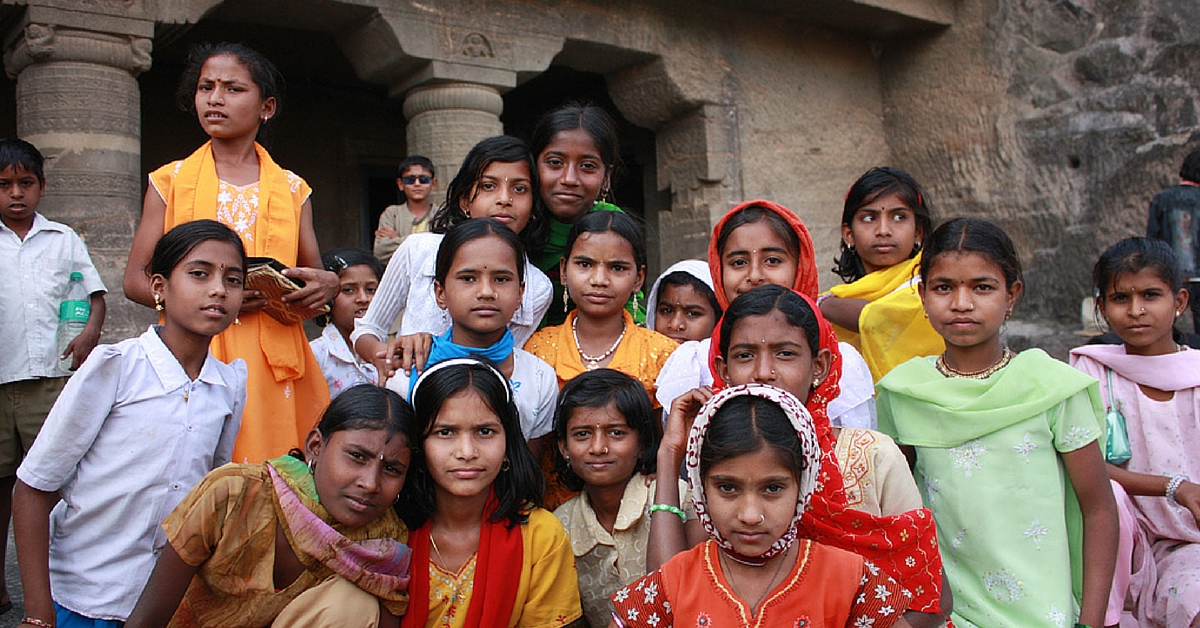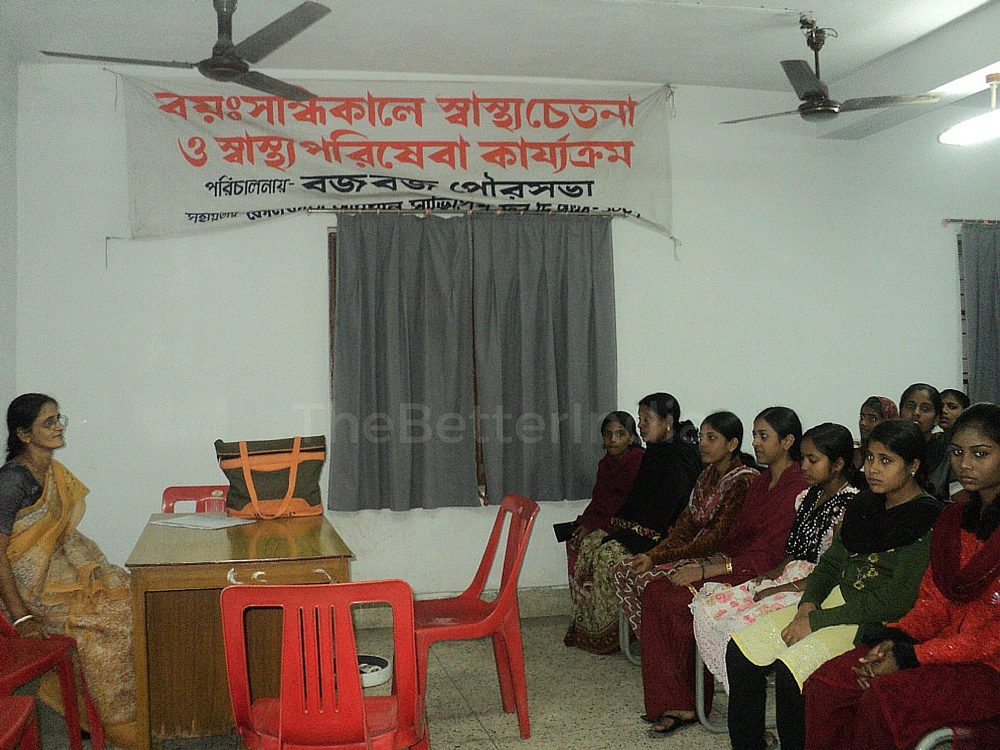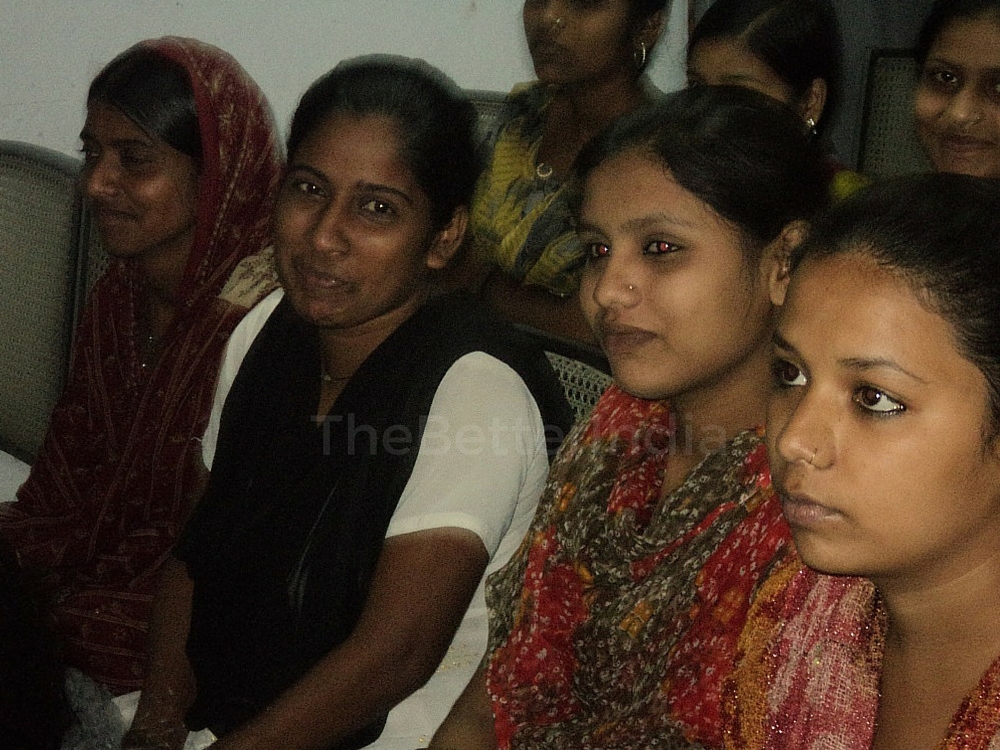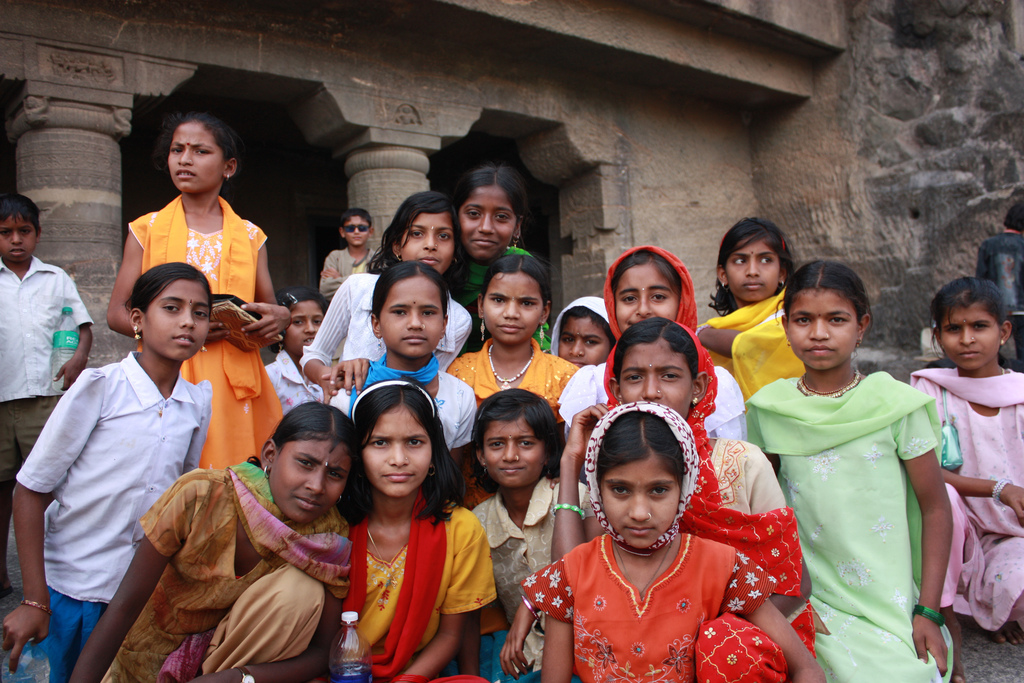Village Girls in WB Boldly Discuss Female Health Issues, Thanks to a Progressive Health Centre
A municipality adolescent health centre is diligently working towards the much neglected health issues of adolescent girls in the small town of Budge Budge in West Bengal. Here's how.

A municipality adolescent health centre is diligently working towards the much neglected health issues of adolescent girls in the small town of Budge Budge in West Bengal. Here’s how.
When Priyanka Das, a resident of Budge Budge, a small municipal town just outside West Bengal’s state capital, Kolkata, was in her early teens, she went through an extremely trying time. Although she was forced to miss school on account of ill health, she never breathed a word about it to anyone at home – not even to her mother, who she knew could not afford to take her to a doctor. Her family was living in dire poverty – her father had been unwell and their household was running on her mother’s meagre income as a vegetable vendor. Whatever cash could be spared was being spent on her father’s medication.
Meanwhile Priyanka, who was suffering from a low appetite, constant stomach aches and irregular periods – considered as “feminine problems” not to be discussed openly – continued to bear her agony in silence.

That was until a few of her friends managed to convince her to overcome her hesitation and visit their local municipal health centre. It was Priyanka’s mother, egged on by the teenager’s friends, who took her to the Budge Budge municipality’s heath centre, where she was first counselled by health workers about health issues and problems commonly faced by young girls and later given treatment. All that the youngster needed to get better, were some deworming capsules and iron supplements and she never missed even a single day of school after that. And as a way of thanking those at the clinic for their help, she regularly takes out time to volunteer there.
Like Priyanka, Sharifa Khatoon is also grateful for the support the health centre rendered when she was in need. Sharifa, too, was brought in by her friends who had tempted her by saying, “you will not just be treated by competent doctors, but will get a small amount of money too”.
The Budge Budge municipality adolescent health centre, located about 30 kilometres from Kolkata, has come as a boon for many young girls of the region, who are either neglected or overlooked by their families because of social and economic constraints or sheer ignorance.

Dr P.B. Chowdhury, former health officer of Budge Budge municipality, shares, “Most girls shy away from talking about their health. They need counselling about their health priorities.” Creating awareness, according to Chowdhury, makes a huge difference to their lives.
The centre, run by the state government’s Change Management Unit (CMU) and the Kolkata Urban Services of the Poor (KUSP), improves health awareness among adolescent girls by taking primary health care to their doorstep. The state government had collaborated with the Development Fund for International Development (DFID) to set up the KUSP project that provides basic services to the urban poor in various municipal areas.
In the slums, where sanitation is a distant dream and a good meal a carefully veiled desire, health usually isn’t accorded any attention. The idea behind setting up a centre like this was to raise basic health concerns of the women in the community and encourage young women from the locality to volunteer as health workers. These workers initially counsel girls and then persuade them to attend a workshop. As an added benefit, a small monetary incentive is given to cover their transportation expenses as well as a compensation for a day’s wages.
“Most of the girls in the Budge Budge municipality work as daily wage labourers in various sewing projects nearby and are therefore hesitant to come, since they lose one day’s income. So it needs lots of coaxing and persuasion. But the compensation helps,” reveals Kanon Mondal, a health worker, who lives in the vicinity.
Once a girl agrees to participate for the training, she attends a short workshop, where at the outset each participant’s detailed performance is filled out, including a description of her family background, dietary habits and health details. According to Dr Chowdhury, “Most of the problems are sorted out from these records itself. We have found that either these girls are anaemic or suffer from hookworm infestations. Once treated, they become fine.”
Thereafter, the girls are counselled specifically on issues related to marriage, sex, children, family planning and socio-economic issues. “It was only after attending one of these counselling sessions that I understood that if a mother’s health is fine, her child will definitely be healthy,” says Rashida Khatoon, who has eight brothers and three sisters. Rashida put her newfound knowledge to good use. “I protested against a proposal to get my sister married early,” she shares.
The awareness building has also made these teenagers less inhibited about discussing their specific health problems, not just amongst friends but also with the women members of their families. Talking of hygiene and being cautious about good sanitation practices has become a matter of priority for them.
Participation in health camps has increased and girls are increasingly expressing their opposition to early marriage and motherhood.

Picture for representation only. Source: Flickr
“I got married before 18 but after visiting the centre I decided to wait until 20 to have my first child,” says Rachana, who is now a happy mother. “I had to plead with my husband a lot but he finally realised what I was saying was for the betterment of our family,” she adds.
Of course, although these centres target the girls of the community, the boys appear to be left out. According to Dr Chowdhury, this is because girls tend to be subject to far more neglect than boys within families, and need special attention. He adds, “In any case, girls have been found to be more receptive to counselling, and attempt to change behaviour patterns at home.”
Like this story? Have something to share? Email: [email protected], or join us on Facebook and Twitter (@thebetterindia). To get positive news on WhatsApp, just send ‘Start’ to 090 2900 3600 via WhatsApp.
If you found our stories insightful, informative, or even just enjoyable, we invite you to consider making a voluntary payment to support the work we do at The Better India. Your contribution helps us continue producing quality content that educates, inspires, and drives positive change.
Choose one of the payment options below for your contribution-
By paying for the stories you value, you directly contribute to sustaining our efforts focused on making a difference in the world. Together, let’s ensure that impactful stories continue to be told and shared, enriching lives and communities alike.
Thank you for your support. Here are some frequently asked questions you might find helpful to know why you are contributing?


This story made me
-
97
-
121
-
89
-
167













